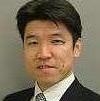
Japan eyes electricity deregulation
A draft proposal by a panel of experts said Japan should overhaul its power sector, dominated by regional monopolies, to promote competition and a stable power supply.
The draft proposal advocated for the "unbundling" of regional utilities' grip on power generation, transmission and distribution as essential to promoting competition and boosting the role of renewable energy, such as solar and wind power.
"The 3/11 disaster called into question the sustainability of the long-existing electricity supply system," the draft proposal said, referring to the Fukushima crisis.
Japan's 10 regional power monopolies now own transmission and distribution grids in their service areas and new entrants must pay access charges to use them.
There were two options in the draft for proceeding with "unbundling". One option would be to set up publicly run Independent System Operators to coordinate, control and monitor the operation of transmission grids along lines similar to state-based organisations in the United States.
Another option is "legal" unbundling, in which utilities would be required to form holding companies and, under that, establish subsidiaries for generation and transmission.
"Unbundling would generate market competition so many newcomers would enter the market and compete and we can expect the tariff should be lower. Of course, there are many other factors," said panel member Hiroshi Takahashi, a research fellow at Fujitsu Research Institute.
The proposal also calls for opening up the retail electricity business supplying power to households, offices and small businesses to competitors to the regional utilities.
And it urges deregulation of how retail prices are set to encourage competition among the regional utilities.
For more.























 Advertise
Advertise







